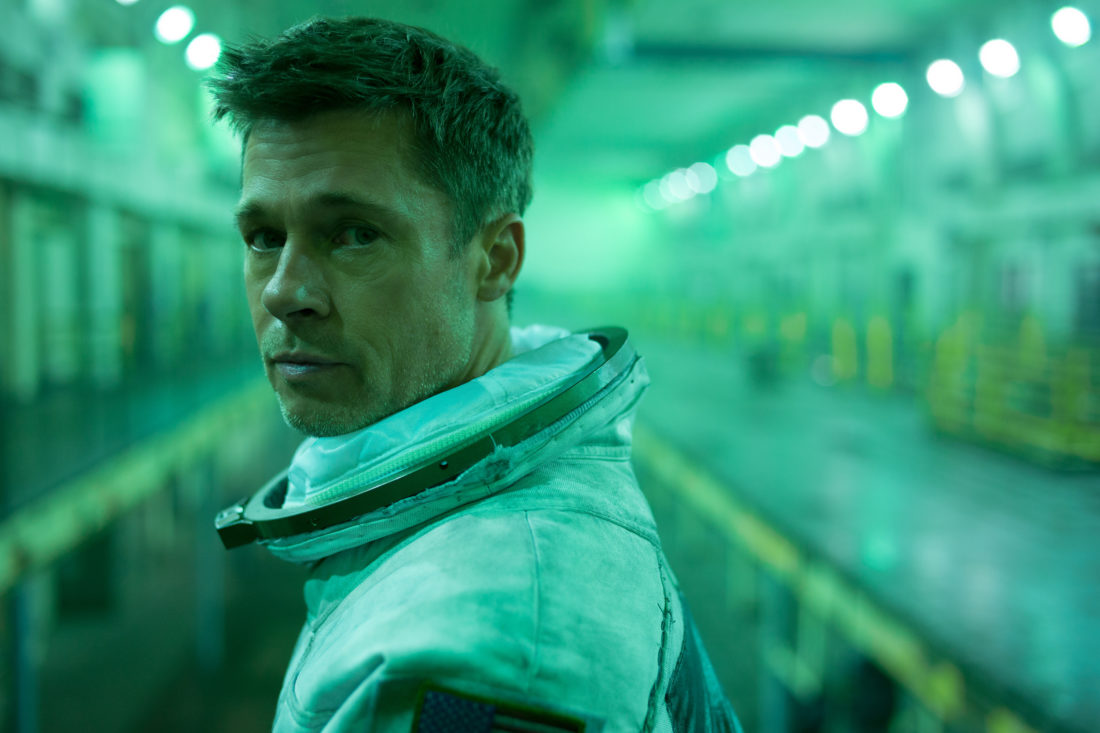Some people look up at the stars, see existence stretching out before them and feel a pull to see if there’s more beyond what the eye beholds or what science theorizes. In Ad Astra, director James Gray (The Lost City of Z) and co-writer Ethan Gross (FOX’s “Fringe”) draw from this allure to create a space odyssey that’s futuristic, expansive and generous in style, yet also psychological, minimal and extraordinarily intimate in narrative scope.
Set in a near future where commercial travel to the moon is fairly common and the U.S. Space Command has sent missions to Jupiter and Saturn, nothing seems out of the realm of possibility. When a strange electrical surge wreaks havoc on Earth, Maj. Roy McBride (Brad Pitt) is tapped by U.S. Space COM to investigate and stop further such incidents that threaten to destroy the planet, all emanating from the last known location of McBride’s decorated military father, Clifford (Tommy Lee Jones).
What unfolds is an interstellar adventure that requires rumination in order to fully grasp the deep layers of metaphor Gray and Gross heap upon audiences. Ad Astra is more than a quest to save the Earth; it’s a quest to save a soul.
It’s also not action packed, but if that news feels like a letdown, know that Gray and cinematographer Hoyte Van Hoytema (Interstellar) will visually knock you absolutely flat. In an opening sequence, Roy steps out onto a platform of the International Space Antennae floating at the edge of the upper atmosphere. The audience sees the black of space on top with Earth below and, as Roy climbs down a ladder, the camera follows, sending the audience on a slow descent behind him.
As your stomach lifts from the anxiety-inducing height, you can’t help but be filled with awe at the sight. It’s one of several moments in the film that blend peaceful wonder with the harsh realities of life, bringing to the forefront the bittersweet duality of man’s relationship with nature, told within a relatable father-son story.
Underneath the sci-fi trimmings, the filmmakers create an elegant, awe-inspiring, extremely personal tale of self-realization and forgiveness. Chock-full of metaphors and symbolism, Ad Astra never loses its tether, remaining fully locked in with reality. This grounded nature is mostly due to Pitt’s performance, which conveys how blocked off Roy is from humanity without ever feeling distant to the audience. We feel for him, even if he can’t seem to do the same for others.
Pitt’s emotional work also makes the film’s final moments the most devastating to observe. Combined with direction that puts viewers right into the action, small or large, Ad Astra offers a transformative experience that may very well inspire a new set of explorers to search the stars. At the very least, it’s an excellent excuse to go to the movies.
Read the full review at elementsofmadness.com.
Starts Sept. 20.





Really good film; ending was kinda weak… THINK 2001: A Space Odyssey meets apocalypse NOW